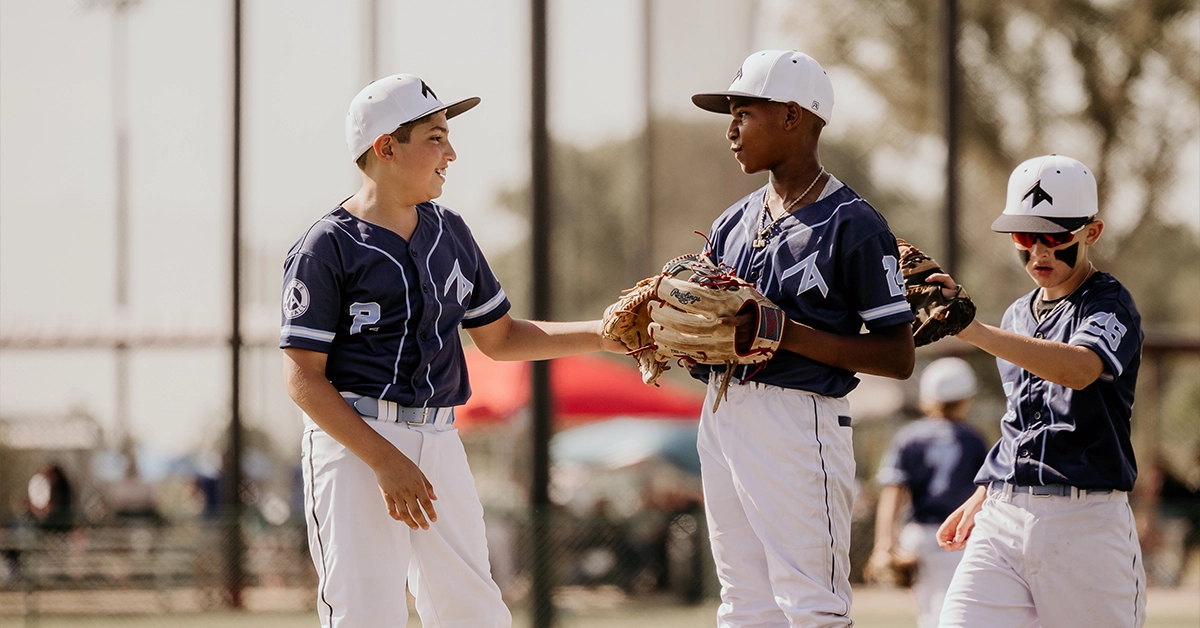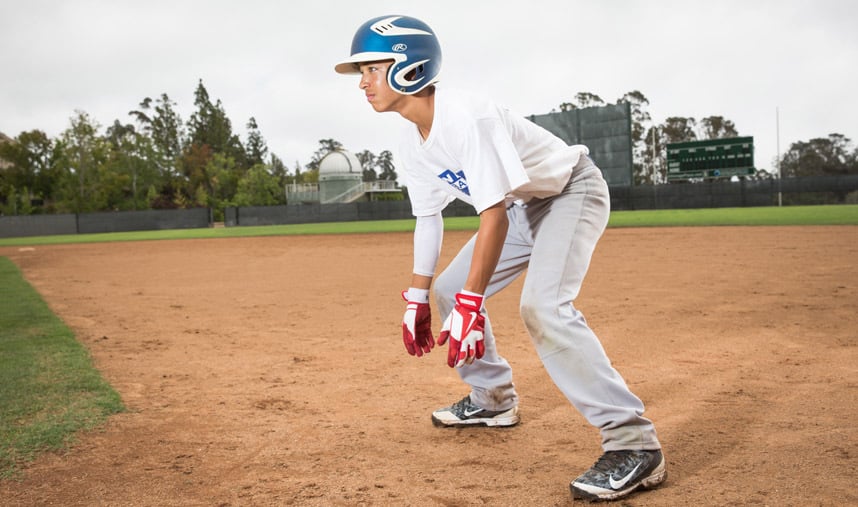
Mistakes are a natural part of any sport, and baseball is no exception. For new players just starting out, it’s important to create an environment where mistakes aren’t feared but embraced as opportunities for learning. As coaches and parents, our job is to help young athletes understand that mistakes are not failures—they are stepping stones on the path to improvement. This mindset of resilience and growth can be cultivated, making it easier for players to move forward, learn, and continue developing their skills. In this post, we’ll dive into why embracing mistakes is so important in baseball and how coaches and parents can help new players build a growth mindset.
Why Embracing Mistakes is Essential in Baseball

In baseball, mistakes happen all the time—whether it’s a missed catch, a misjudged swing, or a bad throw. For new players, it’s crucial to understand that errors are simply part of the learning process. The key isn’t to avoid mistakes at all costs but to learn from them and improve.
Encouraging players to accept mistakes without fear or shame is the first step toward building confidence and developing resilience. Once they stop fearing failure, they’re more likely to take risks, try new things, and ultimately improve their skills.
How Coaches and Parents Can Help Players Embrace Mistakes

Here are some strategies that coaches and parents can use to create a supportive environment where players can learn from their mistakes and grow in the game:
1. Normalize Mistakes

The first thing to do is normalize mistakes. Let new players know that mistakes are part of the journey and even the best athletes make them. Reinforce that making a mistake doesn’t mean they’re bad at the game—it just means they’re learning. The more we can make mistakes feel like a natural and acceptable part of the process, the less players will fear making them.
2. Focus on Effort, Not Just Outcome

Instead of solely focusing on the results of a play, encourage players to focus on their effort and progress. Celebrate the effort they put in, regardless of the outcome. When players are reminded that improvement takes time, they’ll feel more motivated to work hard, even when they make mistakes. Highlighting their small wins and progress can help keep their spirits high.
3. Give Constructive Feedback

When a mistake is made, it’s important to offer constructive feedback. Instead of criticizing or pointing out flaws, offer guidance on how to improve. Focus on what went wrong, why it happened, and most importantly, how the player can fix it next time. This positive and solution-oriented feedback helps players understand that mistakes are simply an opportunity to get better.
4. Encourage Self-Reflection

Encouraging self-reflection is one of the best ways to help players learn from their mistakes. After a game or practice session, ask them to think about their performance: What went well? What could they have done differently? This helps players develop self-awareness and take ownership of their growth. It also empowers them to find their own solutions, which builds confidence and independence.
5. Create a Supportive Environment

A supportive, positive atmosphere is crucial for new players to feel comfortable making mistakes. Encourage players to ask questions, express frustrations, and seek help when they need it. Teamwork and camaraderie are important—teammates should be there for one another, offering support and encouragement when mistakes happen. The more support players feel from their coaches and teammates, the more likely they are to embrace mistakes and learn from them.
6. Set Realistic Expectations

As players start their baseball journey, it’s important to set realistic expectations. New players may struggle at first, but progress comes with time and practice. Coaches and parents should avoid putting pressure on players to be perfect right away. Instead, focus on small, incremental improvements. This helps reduce the fear of failure and encourages players to keep going, even after mistakes.
7. Lead by Example

One of the most powerful ways to teach players to embrace mistakes is to lead by example. Coaches and parents should show how they handle their own mistakes—acknowledge them, learn from them, and move forward. When players see adults modeling this behavior, they’re more likely to do the same. Showing resilience in the face of challenges teaches players that mistakes aren’t something to fear, but an opportunity for growth.
Frequently Asked Questions (FAQs)
1. Why is it important to normalize mistakes in baseball?
Normalizing mistakes helps new players understand that errors are a natural part of the learning process. When players realize that mistakes don’t equate to failure, they become more comfortable making them and are more willing to take risks and try new things.
2. How can focusing on effort and progress help new players?
Focusing on effort and progress instead of just outcomes helps players stay motivated, even when things don’t go perfectly. It encourages them to keep working hard, which ultimately leads to improvement. Celebrating small milestones along the way boosts their confidence and keeps them focused on growth.
3. How should coaches provide feedback after a mistake?
Constructive feedback should focus on what went wrong, why it happened, and how the player can improve next time. Instead of criticizing the mistake itself, offer actionable suggestions and help the player learn from the experience. This fosters a growth mindset and keeps players motivated to improve.
4. Why is self-reflection important for players?
Self-reflection helps players take ownership of their learning process. By thinking about what went well and what could be improved, players develop self-awareness and are more likely to come up with their own solutions. This leads to greater independence and confidence in their abilities.
5. How can coaches and parents lead by example?
Coaches and parents can lead by example by acknowledging their own mistakes and demonstrating how to learn from them. By modeling a positive attitude toward mistakes, adults encourage young players to do the same, reinforcing the idea that mistakes are a natural part of growth.
6. How can I create a supportive environment for new players?
Creating a supportive environment involves fostering a team culture where players feel safe to make mistakes, ask questions, and seek help. Teammates should be encouraged to offer support and understanding, and coaches should focus on positive reinforcement. A supportive environment helps players grow in confidence and embrace mistakes as part of their learning journey.
Conclusion: Mistakes Are Stepping Stones to Success
Embracing mistakes is essential for growth, not just in baseball, but in life. As coaches, parents, and mentors, it’s our job to create an environment where players feel safe enough to make mistakes, learn from them, and improve. By normalizing mistakes, focusing on effort and progress, providing constructive feedback, encouraging self-reflection, fostering a supportive environment, setting realistic expectations, and leading by example, we can help new players build a resilient and growth-oriented mindset.
Remember, mistakes are not setbacks—they’re the key to success. With the right mindset and support, young athletes can develop the resilience, perseverance, and passion needed to improve both on and off the field.

